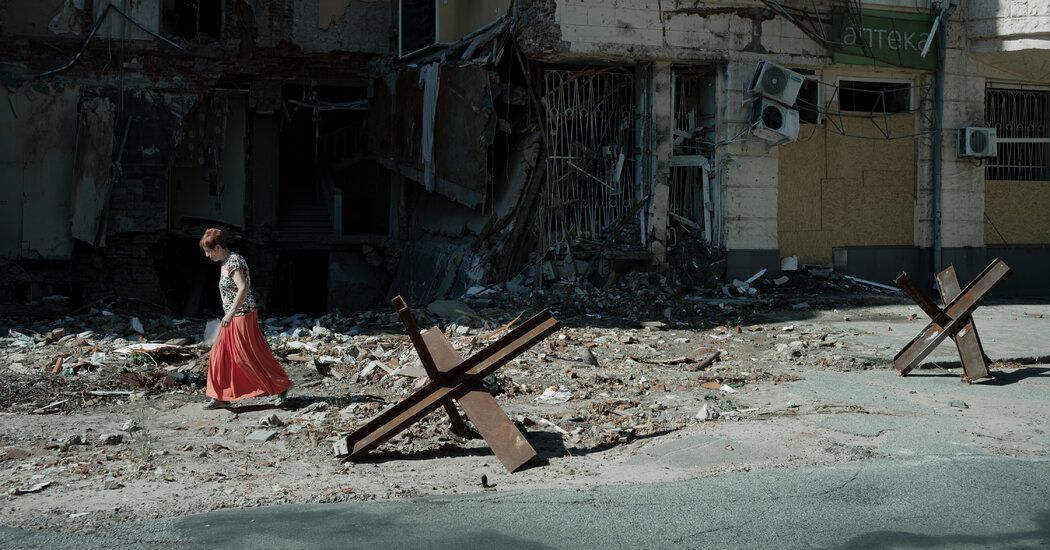Divers haul the day’s catch out onto shore. Credit score: Melissa Ilardo
A brand new evaluation of a bunch of all-women excessive divers off the coast of Korea has uncovered genetic variations that might assist them survive the extreme physiological stresses of free-diving—and will finally result in higher remedies for blood strain problems.
The outcomes are printed in Cell Stories.
The researchers labored with the Haenyeo: girls who’ve spent their complete lives diving within the waters off Jeju Island, 50 miles south of mainland South Korea. They free-dive as much as 60 toes under the floor to reap seaweed, abalone, and different meals objects from the seafloor, spending hours a day within the water all 12 months spherical.
For a whole lot of years, Haenyeo diving was a staple of Jeju’s economic system and tradition, though the apply is now waning. In the present day, most divers are of their 60s and 70s.
“They’re absolutely extraordinary women,” says Melissa Ilardo, Ph.D., assistant professor of biomedical informatics at College of Utah Well being and the senior writer on the research.
“Every day, they head out and get in the water, and that’s where they work all day. I saw women over 80 diving off a boat before it even stopped moving.”
To determine if the Haenyeo’s diving skills are aided by variations in genetics, the researchers measured physiological variables associated to diving potential, comparable to blood strain and coronary heart price. They then sequenced members’ DNA—and located two modifications associated to diving physiology that might give the Haenyeo benefits underwater.

A Haenyeo diver on the water’s edge. Divers spend hours within the water, day-after-day, lifelong. Credit score: Diana Aguilar-Gómez
Adapting to a high-pressure atmosphere
Haenyeo divers are greater than 4 instances extra possible than mainland Koreans to have a genetic change related to decrease blood strain whereas diving. The researchers consider this distinction might preserve divers and their unborn youngsters protected when diving throughout being pregnant.
Breath-hold diving not solely limits the physique’s oxygen provide but in addition raises divers’ blood strain throughout a dive, the researchers say. Holding one’s breath in different contexts, comparable to sleep apnea, is related to pregnancy-related blood strain problems, though it is unknown whether or not diving causes the identical impact.
The researchers speculate that if the genetic change helps decrease blood strain, it may very well be particularly very important for the Haenyeo. These girls dive all through being pregnant and should keep away from blood strain situations comparable to preeclampsia, which might be deadly.
“This is not something that every human or every woman is able to do,” says Diana Aguilar-Gómez, Ph.D., postdoctoral researcher in evolutionary biology at College of California, Los Angeles, and the primary writer of the research. “It’s kind of like they have a superpower.”
Chilly consolation
A second genetic distinction is expounded to ache tolerance—particularly, cold-based ache. Air temperatures off Jeju Island drop to round freezing within the winter, however the Haenyeo do not cease diving. “I asked them once if they would stop diving if it got cold enough,” Ilardo says. “They said that as long as the wind alarm doesn’t go off, they’ll still get in the water.” She clarifies, “The wind alarm is to keep them from blowing out to sea.”
The staff did not measure people’ chilly tolerance, to allow them to’t say whether or not the change they see could also be vital for the Haenyeo’s potential to dive year-round. However they plan to analyze the distinction additional in future work.
The genetic variations that might increase diving potential are discovered all through the inhabitants of Jeju Island. However a lot of what makes the Haenyeo girls particular comes from a lifetime of apply.
Researchers have lengthy recognized that when anybody dives—skilled or untrained, Haenyeo or not—their coronary heart price reflexively drops to preserve oxygen for longer. For a median untrained particular person from Jeju Island, heartbeat slows down by about 20 beats per minute over the course of a simulated dive. For Haenyeo with a lifetime of diving expertise, coronary heart price drops by as much as twice that.

Divers’ tools consists of nets, wetsuits, and buoys. Haenyeo girls dive all through their lives. Credit score: Melissa Ilardo

A Haenyeo diver hauls her tools alongside the shore. Haenyeo girls dive into their 70s and 80s. Credit score: Melissa Ilardo
Advancing well being for all
The researchers hope that their discovery of a genetic distinction linked to blood strain will finally advance take care of well being situations, like stroke, which can be associated to hypertension.
Intriguingly, Jeju Island has one of many lowest charges of stroke mortality in Korea, elevating the likelihood that the genetic change might assist defend towards stroke, Ilardo says.
“If there’s something about it that actually reduces the risk of stroke mortality, then we could help people everywhere by understanding what’s special about these women.”
Extra data:
Genetic and Coaching Diversifications within the Haenyeo Divers of Jeju, Korea, Cell Stories (2025). DOI: 10.1016/j.celrep.2025.115577. www.cell.com/cell-reports/full … 2211-1247(25)00348-1
Offered by
College of Utah Well being Sciences
Quotation:
Genetic evaluation of all-women excessive divers finds modifications linked to blood strain and chilly tolerance (2025, Might 2)
retrieved 3 Might 2025
from https://medicalxpress.com/information/2025-05-genetic-analysis-women-extreme-divers.html
This doc is topic to copyright. Other than any truthful dealing for the aim of personal research or analysis, no
half could also be reproduced with out the written permission. The content material is offered for data functions solely.




